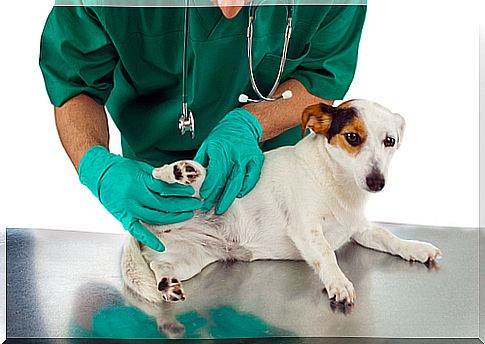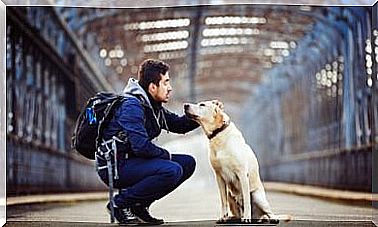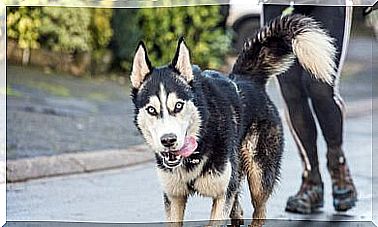Stress In Dogs: What Causes It

Dogs come to suffer from many of the pathologies of humans. Mainly because they are also affected by phenomena typical of modernity, such as noise, a hectic pace of life or absent owners, among others, it is increasingly common to find cases of stress in dogs.
Dogs develop stress from different situations, which can be environmental, social or due to illness. A good way to control your pet’s stress levels is to determine what is causing it. We show you some elements that can cause stress in dogs:
Shrill noises
The holidays, especially Christmas, are usually times when pets are most stressed, due, in large part, to the movement of people, travel and, especially, fireworks. In fact, December is the month when the most lost pets are registered. However, there are pets that tolerate noise better than others, and this depends, to a large extent, on the handling that the caregiver has given to the situations to which the animal was exposed.
The shrill noises, whistles, explosions, etc. They produce panic attacks in dogs, because they do not associate a certain noise (for example, gunpowder) with something known. Also, bearing in mind that their hearing is much more sensitive and they face unexpected sound, it is most natural for them to get scared.
However, as a caregiver, you can take actions to make your dog more tolerant of noise. For example, during the holidays, accompany him while the fireworks last, but do not reward the behavior with treats or caresses. Do this only when he is calm. The ideal would be to expose the animal from puppy to loud sounds. This way you will know how to control fear.
Separation anxiety

Separation anxiety is the feeling that an animal or person has that they have been abandoned as soon as the caregiver leaves the home. This is a problem that can seriously affect the coexistence and health of a pet, as it manifests itself through urination in inappropriate areas, destruction of furniture and objects or an exaggeratedly nervous attitude on the part of the dog.
This disease is very common in dogs with a history of abuse or neglect. However, it can be managed through education, leaving it only for short periods of time and returning after a few minutes. Remember that you should not leave a dog alone for a long time if it is not used to it, as this can alter its behavior when you are not there.
Another thing you can do is get another pet so that the dog does not get bored in moments of loneliness, although that only if it is within your means. When anxiety episodes are very strong, it is best to consult an expert in canine behavior for some guidelines on how to control the situation.
A tense atmosphere
Dogs are adept at reading the body language of their keepers. Therefore, they tend to notice changes that disturb the peace of the home and this ends up affecting them. An environment where there is violence, constant arguments, noise or tension is not good for a dog, as these factors stress them.
Likewise, changes in its environment, such as moving, tend to represent high stress situations for the dog, especially because it must adapt to a new space, with other objects, smells, noises, etc.
Visit to the vet

The vet is to dogs what the dentist is to many children. This is because dogs associate visiting the vet with unpleasant or at least painful experiences (for example, vaccinations or when they are sick). Likewise, the examinations that the veterinarian submits to the dog can be uncomfortable, which is why they do not like it.
The fact of being in a strange environment and surrounded by other animals that are also nervous contributes to increasing the fear that your pet feels. It is basically fear of the unknown.
In this case, you should reward him when he is calm and avoid caresses when he is too nervous. You may feel sorry for it, but that way you only reinforce the behavior.









